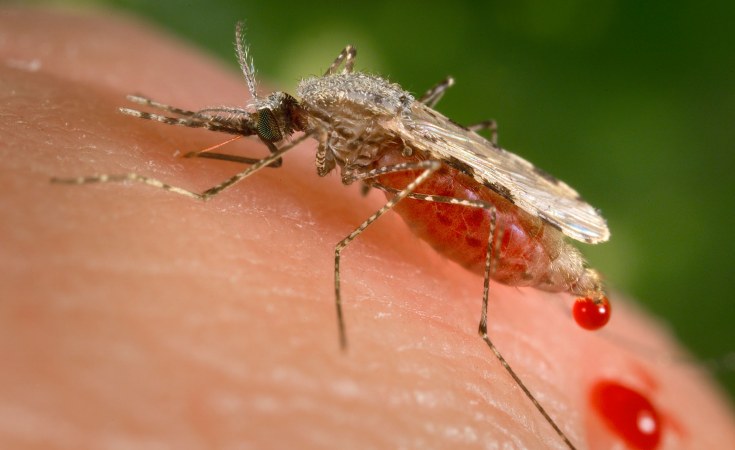A child dies almost every minute from malaria. While huge gains have been made in recent history in reducing the burden of malaria -- with deaths falling by 50 percent between 2000 and 2015 -- progress has stalled and we have seen the numbers of cases and deaths creeping back up in recent years. Achieving malaria elimination is a moving target, in more ways than one.
Malaria is complex, the parasite responsible for transmitting the disease is evolving and compounded by climate changes, urbanisation and other emerging threats, so is the environment in which its carrier -- the mosquito -- operates. Despite decades of investment and the large-scale deployment of proven interventions to prevent its spread, 249 million cases and 608,000 deaths were reported in last year's World Malaria Report. The numbers are a reminder that there remains a huge burden and significant challenges in achieving a world free from malaria.
Available funding for malaria is off target. In 2022, a total of US$ 4.1 billion was invested globally in malaria response against the required target of US$ 7.8 billion. While multilateral and international funding is vital to driving down the global malaria burden, the funding gap, which currently stands at $3.7 billion, continues to widen. Business as usual is not an option to achieve the level of progress we saw 10 years ago and is far from what is needed to achieve the ambitious targets set out in the World Health Organization's global technical strategy to reduce malaria case incidence and mortality rates by at least 90 percent by 2030.
So, what can we do differently?
Philanthropic investment has funded the development of life-saving vaccines, expanded access to essential medicines, and strengthened healthcare systems in underserved regions. Philanthropic funding, from individuals and organisations, is proving to be agile and capable of leveraging further resources and expertise to support the development of new technologies, test novel approaches, and scale up proven interventions in ways that traditional development aid may struggle to do.
Philanthropy has the potential to mobilise flexible financing and foster innovative partnerships that can complement traditional multilateral and bilateral funding, and development assistance. According to Forbes, the net worth of the world's 2,460 billionaires is at least $12.2 trillion and whilst philanthropic investment in tools, research, and innovations designed to end malaria is already helping to deliver cost-effective interventions, like seasonal malaria chemoprevention (SMC), there is significant untapped potential.
Ahead of this year's World Malaria Day, we want to galvanise the conversation, bringing together partners in malaria and global health to explore how endemic countries can secure and enhance the impact of philanthropic investment and how we can build collaborative partnerships between philanthropy, governments, multilaterals and civil society around the malaria elimination agenda.
Revolutionary tactics are needed if we are to see the end of malaria in our lifetime. Optimising the conditions in which philanthropic investment can be maximised and facilitating its scale up can bring countries closer to a malaria-free world and health equity for all.
Be a part of the conversation: Register for our webinar on 23 April 2024 5.15pm-6.15pm CAT


